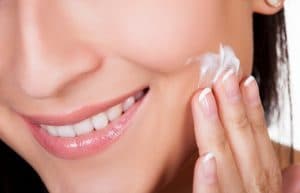
CBD is undoubtedly becoming one of the most talked-about and used substances in the health industry today. From treating pain to anxiety, and most notably seizures, CBD is being hailed as a cure-all for different ailments.
CBD, or cannabidiol, is an active ingredient in cannabis (marijuana). It is derived directly from the hemp plant and by itself does not cause a “high” like THC, another active ingredient in cannabis, does. The legal status of CBD is unclear. While it is very easy to obtain CBD online without a medical cannabis license, the federal government still considers CBD in the same class as marijuana. Each state has their own laws legalizing CBD with varying degrees of restriction.
Lately, CBD products have been making their way into the skincare and beauty industries. “CBD has become a trendy ingredient that has led many brands to incorporate it into their products, which are often marketed for purported benefits of being anti-inflammatory, analgesic, hydrating, moisturizing and wrinkle-reducing,” Jordan V. Wang, MD, MBE, MBA, of the department of dermatology and cutaneous biology at Sidney Kimmel Medical College at Thomas Jefferson University in Philadelphia, and colleagues write. Some even claim to help with acne, psoriasis, and pruritus.
Using Caution with CBD Products
There is very little research available on the range of cannabinoid products available today and their effects on the skin. Although the results look promising, not enough studies or research has been conducted, so it’s an area that is still very poorly understood. Furthermore, these products have not been tested for safety or efficacy by the Food and Drug Administration (FDA) which means they lack regulatory approval.
Russell Kamer, MD, a primary care physician and co-founder of Partners in Safety said in regards to the regulation of products, “Some patients get it from drug stores or chiropractors. Others purchase it online, at gas stations, even from flea markets. They think they are getting a [tetrahydrocannabinol]-free, safe product. … [But some] 20 mg CBD tablets can have a milligram of THC. … A person taking two or three tablets would have significant exposure to THC.” Because the drug is not regulated, it’s hard to know what you are getting and if it is safe, let alone if it will do what it claims to do.
While CBD continues to become a trendy ingredient and claims to have amazing effects on the skin as it relates to anti-aging, wrinkles, acne, and even pruritus, it remains unregulated by the FDA and lacks clinical data to support its claims. Therefore you should exercise caution in using these products, and more specifically in recommending them to your patients.
